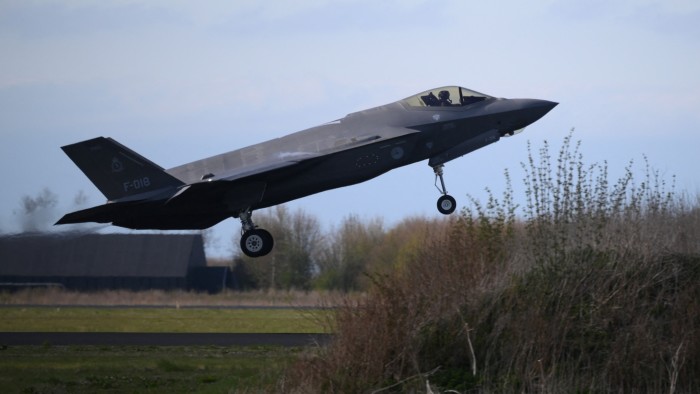Unlock the White House Watch newsletter for free
Your guide to what Trump’s second term means for Washington, business and the world
The Trump administration’s pivot away from being the primary guarantor of European security has been a boon for the continent’s arms makers. Shares in the UK’s BAE Systems, Italy’s Leonardo, France’s Thales and Germany’s Rheinmetall are up between 63 per cent and 164 per cent so far this year.
Pentagon contractors based in the US, meanwhile, find themselves in no man’s land. Comments from a trio of industry bellwethers on Tuesday underscore the challenges.
In theory, manufacturers of fighter jets, battleships and missiles should be a defensive haven for investors, given that most build their products in America and sell primarily to the US government. President Donald Trump’s promise earlier this month of a record-breaking $1tn defence budget for next year should have provided a fillip for the sector.
But details on the budget are scant, and the White House’s current occupant is prone to policy flip-flops. The trillion-dollar budget also appears to run counter to the president’s push for a leaner government. Small wonder shares of Lockheed Martin, General Dynamics, Northrop Grumman, RTX and L3Harris Technologies have largely traded sideways since the start of the year.
A full budget proposal is not expected until mid-May. But even if the defence department gets its $1tn, traditional defence companies may not be the first in line to benefit. At the top of Trump’s spending priorities is the so-called Golden Dome missile defence shield. Elon Musk’s SpaceX, together with data consultancy Palantir and drone builder Anduril, are reportedly the frontrunners to win a bid to build crucial parts of this. All three companies were founded by entrepreneurs who have been big political supporters of Trump.
By contrast, lower down the list would be manned fighter jets such as Lockheed’s F-35, which can cost some $100mn per plane and has been the target of Musk’s criticism.
Then there is the fallout from Trump’s trade wars, which could reduce exports and drive up costs for input components and materials. Meanwhile, China’s restrictions on rare earth mineral exports to the US could disrupt the production of everything from fighter jets to submarines and drones altogether.
RTX, which makes jet engines, aircraft components and Patriot missile-defence systems, warned on Tuesday that it could take an $850mn hit this year from tariffs. Northrop Grumman cut its earnings forecast for the year as costs mounted for its next-generation B-21 stealth bomber. Lockheed, which kept its full-year guidance unchanged, noted the “highly dynamic geopolitical and technical environment”.
Yet defence stocks are not cheap. RTX, Northrop and Lockheed are all trading on forward earnings multiples that are largely in line with their three-year averages. Large order backlogs and the option to pass on costs to end customers explain why valuations have held up. But with the US and global economic outlooks looking shakier by the day, investors betting on continued geopolitical turmoil should seek shelter somewhere else.

Source link









